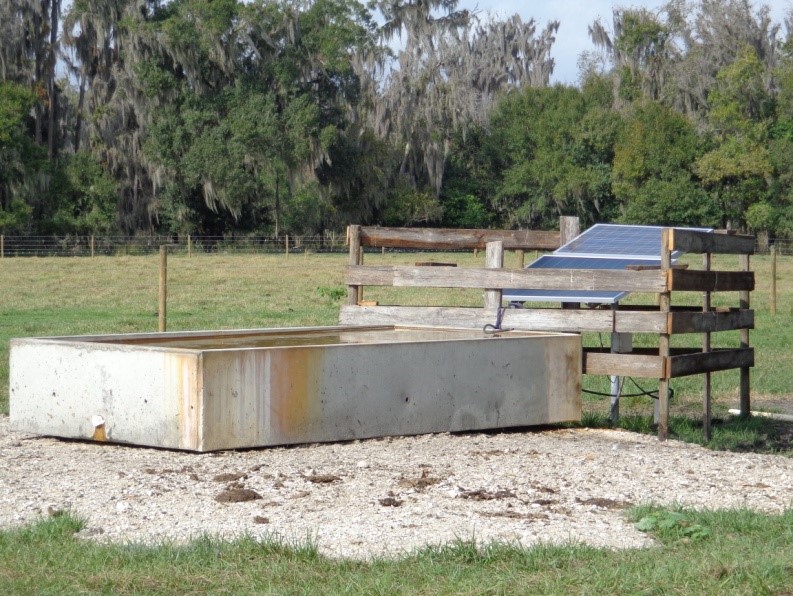Delivering the Key Nutrient with More Convenience and Less Cost
Water – the Key Nutrient
Water is the nutrient livestock need in the greatest amount, a fact that is often overlooked. Adequate, acceptable-quality water is critical to maintaining high production levels as well as preventing and treating stress in animals. Cows can drink up to 15 gallons of water a day, and even more in certain stages of pregnancy. Water not only aids in digestion and improves weight gain, but also keeps their body cool in the hot afternoons. [emember_protected custom_msg=”Click here and register now to read the rest of the article!”]
Solar Pumps – More Convenience, Less Cost
Solar pumps have become of major interest in enhancing water quality best management practices (BMPs). They make it possible to place water tanks and troughs in more areas because they can be installed on parts of the property where there is no power source, without the cost of running power lines or increasing electricity costs. Having these additional watering spots allows for more rotational grazing.
By installing troughs in shaded areas where cattle have access to creeks, streams, or ponds, it is more likely they will congregate around the water trough on a hot summer day instead of standing in a waterbody and depositing nutrients.
Research even indicates that cattle prefer water tanks or troughs to ponds or streams. The tanks or troughs allow cattle access to fresh, clean water, whereas ponds can be polluted from animal congregation, which can lead to waterborne disease. And, as you might recall, last spring many people had dry ponds or had to dig them out.
Cows will travel a little farther to drink fresh, cool water and are likely to consume more of it than lower-quality water. This will enhance forage digestibility, and the calves will walk across the scale with more pounds on them at weaning.
Installing solar pumps for cattle watering is a good way to help keep our water resources clean and improve the efficiency of your operation.
CREDIT
article by MATTHEW WARREN,
Florida Department of Agriculture, Office of Agriculture Water Policy.
Contact Matt at (863) 773-2164 or email Matthew.warren@freshfromflorida.com. [/emember_protected]

